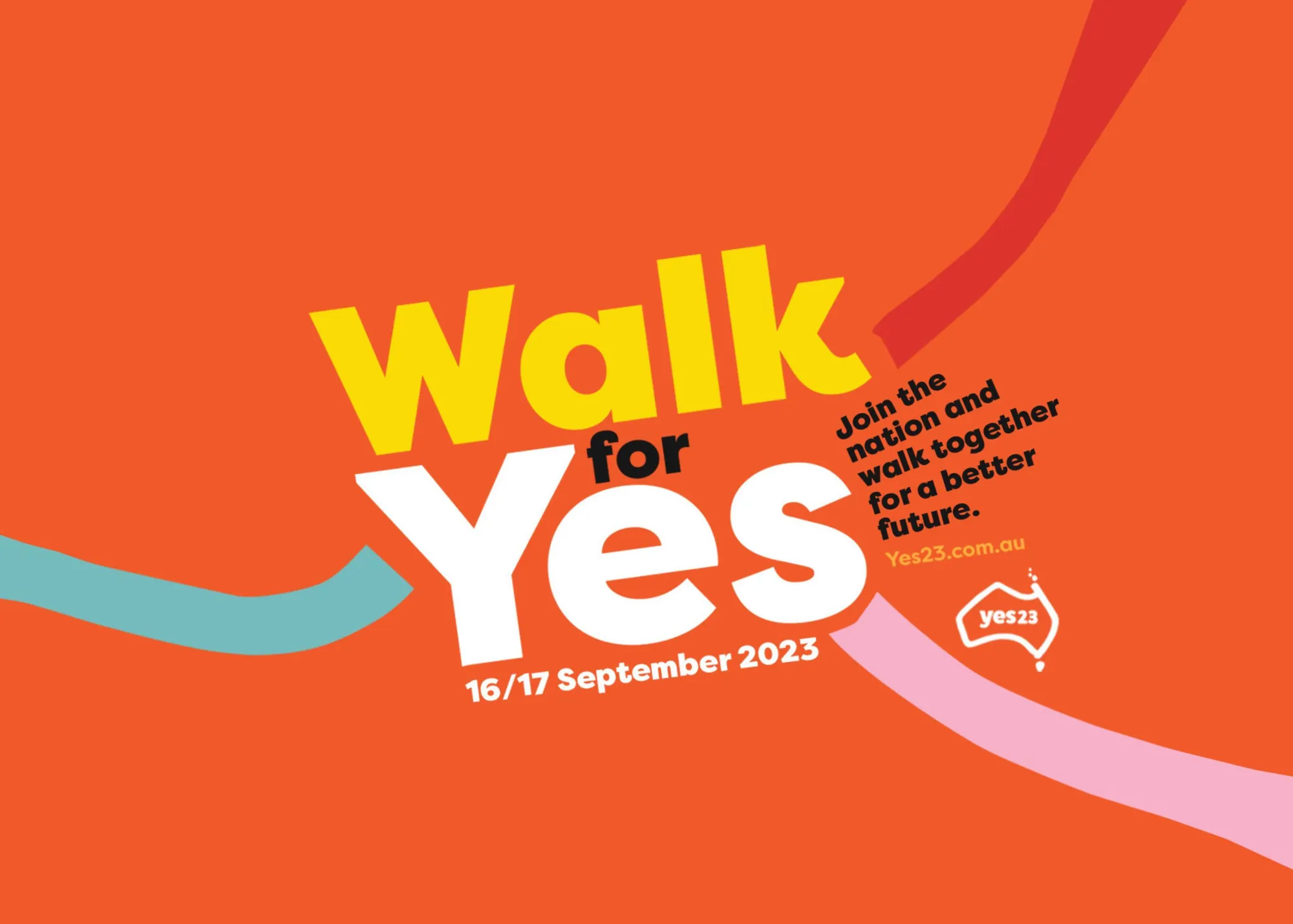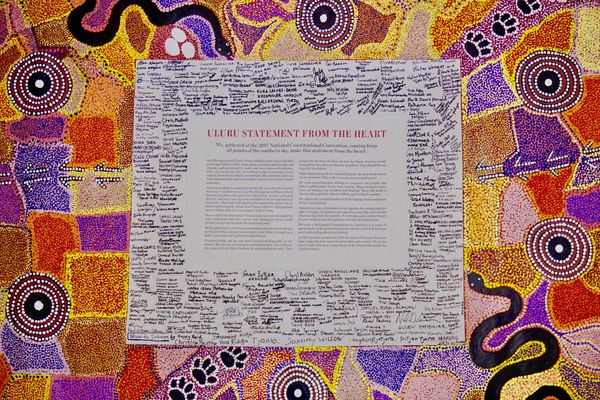Reflections on the Referendum
Reflections on the Referendum
Not sure? Find out more
Mr Andy Gordon, Acting Principal and Rev. Dr Katherine Rainger, Senior Chaplain
On 14 October, Australians will participate in a referendum. We will be asked to recognise Aboriginal and Torres Strait Islander peoples in the Constitution for the first time and to give them a say on issues that affect them.
What is the question for the Voice referendum?
The question that will be put to the Australian people at the 2023 referendum will be:
“A Proposed Law: to alter the Constitution to recognise the First Peoples of Australia by establishing an Aboriginal and Torres Strait Islander Voice.
Do you approve this proposed alteration?”
What is the proposed change to the Constitution?
The proposed law that Australians are being asked to approve at the referendum would insert the following lines into the Constitution:
Chapter IX Recognition of Aboriginal and Torres Strait Islander Peoples
129 Aboriginal and Torres Strait Islander Voice
In recognition of Aboriginal and Torres Strait Islander peoples as the First Peoples of Australia:
i. There shall be a body, to be called the Aboriginal and Torres Strait Islander Voice;
ii. The Aboriginal and Torres Strait Islander Voice may make representations to the Parliament and the Executive Government of the Commonwealth on matters relating to Aboriginal and Torres Strait Islander peoples;
iii. The Parliament shall, subject to this Constitution, have power to make laws with respect to matters relating to the Aboriginal and Torres Strait Islander Voice, including its composition, functions, powers and procedures.
Responses from constitutional law experts examining the ‘yes’ and ‘no’ responses can be found here.
Important information on how the Voice will work if the referendum is successful can be found here.
Walk for Yes

This coming weekend, Yes23 is hosting a series of walks around Australia to "walk together for a better future" and build momentum for recognising Aboriginal and Torres Strait Islander peoples in the constitution through a Voice to Parliament. There will be events held across the country on Saturday 16 and Sunday 17, September. There is even a Walk for Yes event being held in Dili in Timor-Leste on Sunday, 17 September.
Canberra Walk for Yes
When: 11 am on Sunday, 17 September
Where: Northwest Grounds of the National Library of Australia
More details: click here
To find your local walk or other walks across Australia, click here.
Reflection from The Right Reverend Dr Mark Short, Diocesan Bishop of the Anglican Diocese of Canberra and Goulburn
On the weekend, 300 representatives from parishes, schools and agencies of the Diocese of Canberra and Goulburn gathered for the annual Synod (church parliament). The upcoming referendum featured over the weekend as Synod members heard addresses from Canon Associate Professor Uncle Glenn Loughrey, the Chair of the National Aboriginal and Torres Strait Islander Anglican Commission, and Bishop Mark Short.
Bishop Mark Short gave an address to begin the proceedings. The opening address provided an opportunity for the Bishop to outline his vision for the Diocese, of which Radford College is a part. The address can be read in full here.
Bishop Mark’s section on the referendum presents a creative and thoughtful argument for voting yes to the proposed referendum change. It is worth reading his argument in full. Bishop Mark writes:
Working Through Difference: The Example of Recognition
"...I invite you to join me in conversation with the Canadian Theologian Charles Taylor, and ultimately the teaching of Holy Scripture.
"In his 1994 paper, The Politics of Recognition, Taylor outlines two versions of recognition that have developed and now co-exist in contemporary Western culture.
"A first version of recognition focuses on equality and what I share in common with every other human being. Recognition occurs as others affirm that in some profound sense I am just like them.
"By contrast, a second version of recognition focuses on difference and on the distinct groups to which I belong and with which I identify. Recognition occurs as others affirm that in some sense I (or we) are different to them.
"Taylor unpacks the potential conflict between these two versions of recognition as follows:
'For one, the principle of equal respect requires that we treat people in a difference-blind fashion. The fundamental intuition that humans command this respect focuses on what is the same in all. For the other, we have to recognise and even foster particularity. The reproach the first makes to the second is just that it violates the principle of non-discrimination. The reproach the second makes to the first is that it negates identity by forcing people into a homogenous mould that is untrue to them.'
"It is not difficult to discern these different versions of recognition in the debate about the Voice. For some, the Voice is to be rejected because it violates the principle of equality before the law. For others, the Voice is to be supported because it affirms the particular and unique place of First Nations peoples within the Australian community.
"So, what can we say as Christ's followers? First, we need to acknowledge that both these versions of recognition are historically contingent - that is they arose in a particular time and place. That does not necessarily make them untrue, but it should caution us against treating them as self-evident, at least in isolation.
"Second, we might want to consider whether here as in much else we have an instance of different cultural groups drawing on different aspects of a common, yet oft-forgotten, Christian heritage.
"Is there a way to bring together what contemporary culture has pulled apart? In the final section of his paper, Taylor suggests a way forward for navigating these two versions of recognition:
'One ground that has been proposed is a religious one. Herder, for instance, had a view of divine providence, according to which all this variety of culture was not a mere accident but was meant to bring about a greater harmony. I can't rule that out ... we only need a sense of our own limited part in the whole human story to accept the presumption.'
"Now as a Catholic Christian, I suspect Taylor is more open to this possibility than he lets on. Certainly, within Scripture it is observable that recognition most often occurs not through the communication of abstract principles but through God's providential actions in the human story.
"The pre-eminent Old Testament example is of course the Exodus. It is through God's judgement on Egypt and the deliverance of Israel that both will come to know the LORD. Likewise, in the New Testament we come to recognise the love of God through Jesus Christ laying down His life for us. In both Testaments, God's people are given means to remember, recount and re-live these foundational divine actions through the Passover and Eucharist respectively.
"Shaped by these actions and this story, God's people are then able to form community in which fundamental equality before God is combined with ongoing difference without one cancelling out the other. Elsewhere I have sought to show how this works itself out for Jewish and Gentile believers according to Paul's letter to the Romans.
"What has this to do with contemporary debates? Insofar as the teaching of Scripture reveals something true about the nature of the world, it suggests a healthy Constitution is shaped both by principle and story, equality and difference, without one cancelling out the other.
"As far as the Australian Constitution is concerned, the 'story’ is contained in the preamble:
'WHEREAS the people of New South Wales, Victoria, South Australia, Queensland, and Tasmania, humbly relying on the blessing of Almighty God, have agreed to unite in one indissoluble Federal Commonwealth under the Crown of the United Kingdom of Great Britain and Ireland, and under the Constitution hereby established...'
"That story then qualifies, or at least shapes, how principles are applied elsewhere, for example, through the stipulation that all the original states shall have the same number of Senators; as opposed to strict application of equal representation which would have seen the numbers determined in accordance with relative population.
"There is of course one glaring omission in our Constitution's preamble and that is the absence of those who were present in this land for thousands of years before European colonisation. The place of First Nations peoples in our shared story is unique and cannot be generalised or paralleled to any other racial or ethnic group.
"This then raises the question of how Constitutional recognition of this reality can occur - is it, for example, sufficient to modify the preamble to acknowledge our First Nations or, as in the case of Senate representation, is it appropriate to allow this reality to shape other Constitutional provisions?
"My view is that, as in the case of Senate representation, a Constitutionally-enshrined advisory Voice is an appropriate means of recognising equality and difference in this aspect of our common life.
"There is of course much more that can and will be said. Let me conclude with these words from my June editorial:
'I encourage all of us to listen carefully and speak wisely in the months ahead. The greatest potential to divide our nation, our communities and our churches lies not in the outcome of the vote but in overblown rhetoric and careless attitudes in the lead up to it. Please be particularly mindful of our First Nations neighbours, especially those who share our faith in Christ. Few of us who come from a different cultural background can imagine what it feels like to have one's identity a subject of national debate... My prayer is that as we engage as God's people with these weighty matters, we might commend the gospel, not least through our willingness to be distinctively grace-filled in our words and actions.'"
